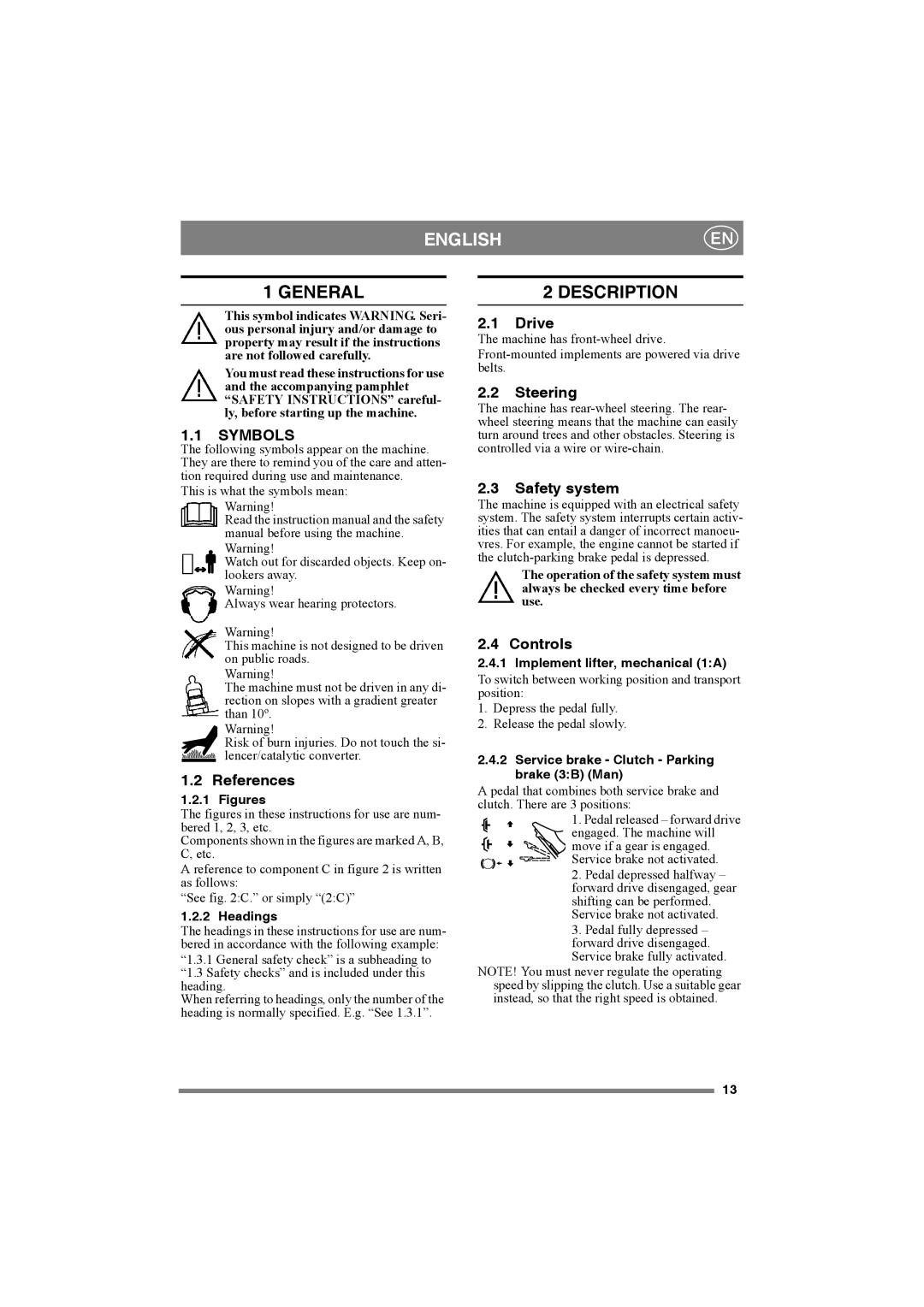
ENGLISH
1 GENERAL | 2 DESCRIPTION |
This symbol indicates WARNING. Seri- ous personal injury and/or damage to property may result if the instructions are not followed carefully.
You must read these instructions for use and the accompanying pamphlet “SAFETY INSTRUCTIONS” careful- ly, before starting up the machine.
1.1SYMBOLS
The following symbols appear on the machine. They are there to remind you of the care and atten- tion required during use and maintenance.
This is what the symbols mean: Warning!
Read the instruction manual and the safety manual before using the machine. Warning!
Watch out for discarded objects. Keep on- lookers away.
Warning!
Always wear hearing protectors.
Warning!
This machine is not designed to be driven on public roads.
Warning!
The machine must not be driven in any di- rection on slopes with a gradient greater than 10º.
Warning!
Risk of burn injuries. Do not touch the si- lencer/catalytic converter.
1.2 References
1.2.1 Figures
The figures in these instructions for use are num- bered 1, 2, 3, etc.
Components shown in the figures are marked A, B, C, etc.
A reference to component C in figure 2 is written as follows:
“See fig. 2:C.” or simply “(2:C)”
1.2.2 Headings
The headings in these instructions for use are num- bered in accordance with the following example: “1.3.1 General safety check” is a subheading to “1.3 Safety checks” and is included under this heading.
When referring to headings, only the number of the heading is normally specified. E.g. “See 1.3.1”.
2.1Drive
The machine has
2.2Steering
The machine has
2.3Safety system
The machine is equipped with an electrical safety system. The safety system interrupts certain activ- ities that can entail a danger of incorrect manoeu- vres. For example, the engine cannot be started if the
The operation of the safety system must always be checked every time before use.
2.4 Controls
2.4.1 Implement lifter, mechanical (1:A)
To switch between working position and transport position:
1.Depress the pedal fully.
2.Release the pedal slowly.
2.4.2Service brake - Clutch - Parking brake (3:B) (Man)
A pedal that combines both service brake and clutch. There are 3 positions:
1.Pedal released – forward drive engaged. The machine will move if a gear is engaged. Service brake not activated.
2.Pedal depressed halfway – forward drive disengaged, gear shifting can be performed. Service brake not activated.
3.Pedal fully depressed – forward drive disengaged. Service brake fully activated.
NOTE! You must never regulate the operating speed by slipping the clutch. Use a suitable gear instead, so that the right speed is obtained.
13
